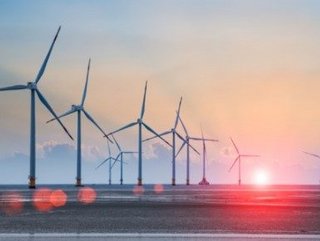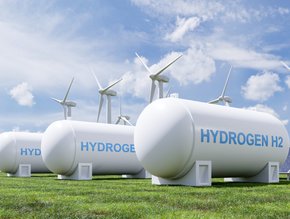Ørsted sells 50% stake in Hornsea 2 offshore wind for £3bn

Ørsted is selling its 50% stake in the 1.3GW Hornsea 2 Offshore Wind Farm in the UK to a consortium comprising AXA IM Alts and Crédit Agricole Assurances, in a deal worth £3bn.
Hornsea 2, currently under construction, will become the world’s largest offshore wind farm once commissioned later this year, and the deal is expected to close in the second half of 2022.
AXA IM Alts and Crédit Agricole Assurances will then each own 25% of the project. The investors’ 50% stake will be funded through a combination of equity and a senior multi-tranche staple financing package provided by 30 banks and including a covered tranche guaranteed by EKF, Denmark’s export credit agency. The financing package was originated and structured by Ørsted.
Spanning an offshore area of 462sqkm, Hornsea 2 is located 89km off the Yorkshire coast in the Hornsea zone, one of the world’s largest offshore wind development areas. Hornsea 2 will provide enough green electricity to power the equivalent of more than 1.3mn homes annually, and is a key project supporting the UK government’s objective of achieving 40GW of offshore wind capacity by 2030.
Ørsted is finalising the construction of the project and will provide long-term operations and maintenance (O&M) services for 20 years from its O&M base at the Port of Grimsby, the largest such base for offshore wind farms in the world. Furthermore, Ørsted will provide the incoming partners with balancing services and a long-term route to market for the renewable electricity generated from Hornsea 2.
Martin Neubert, Chief Commercial Officer and Deputy Group CEO at Ørsted, said AXA IM Alts and Crédit Agricole Assurances are committed to accelerating the transition to a carbon-neutral economy in line with the Paris Agreement – thereby supporting the urgently needed shift from fossil-based to renewable energy sources.
Mark Gilligan, Head of Infrastructure Equity at AXA IM Alts, said its investment strategy is all about decarbonisation, electrification, and digitalisation.
"These are central to the energy transition," he said. "Hornsea 2 allows us to play an important role in decarbonising and electrifying the United Kingdom. This landmark transaction aligns with our aim of acquiring, for our clients, utility-scale low-carbon essential businesses and being a long-term partner of choice for outstanding operators like Ørsted.”
Philippe Dumont, CEO of Crédit Agricole Assurances, said: “This investment in Hornsea 2, the world’s largest offshore wind farm, is fully in line with Crédit Agricole Group's climate commitments. This operation will also contribute to Crédit Agricole Assurances’ objectives to double its investments in renewable energies and reach an 11 GW installed capacity by 2025.”
Duncan Clark, Head of Region UK at Ørsted, said Ørsted has invested more than £14bn in the UK to date, and when Hornsea 2 becomes fully operational later this year, its wind farms will be supplying over 7% of Britain’s electricity.
"We’re now focused on helping the UK deliver on its 40GW and Sector Deal target for offshore wind by 2030, a significant milestone in the energy transition that will deliver more than £60bn of investment for the UK while supporting the UK’s world-class offshore wind supply chain and more than 40,000 jobs over the next few years.”
- Sungrow has partnered with Statera Energy to supply a 362 MW/391 MWh energy storage project in the UK. The first phase of the project was grid-connected in Q1, while the rest will be brought online this year.






